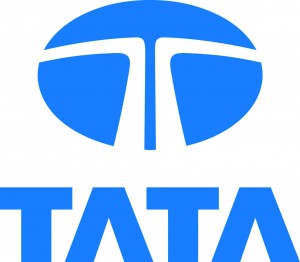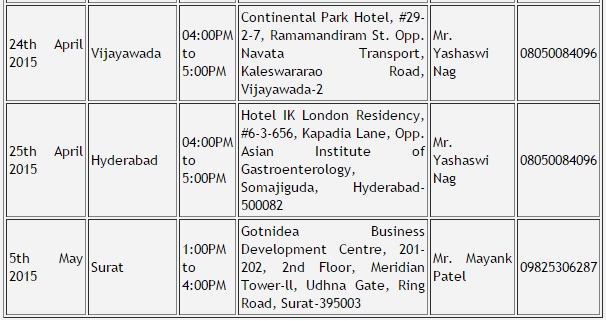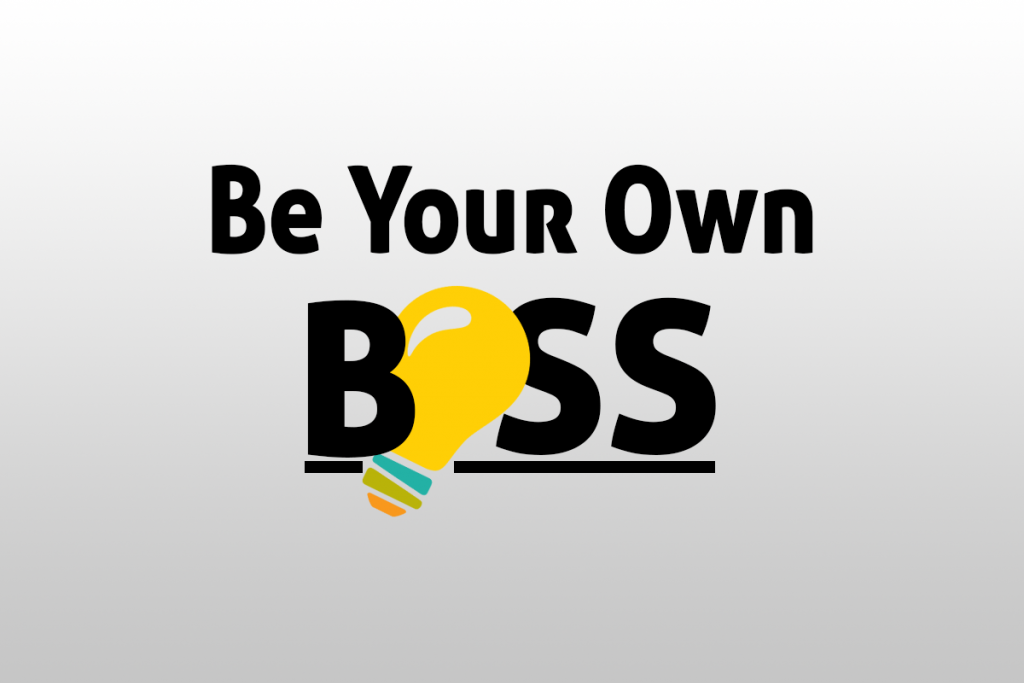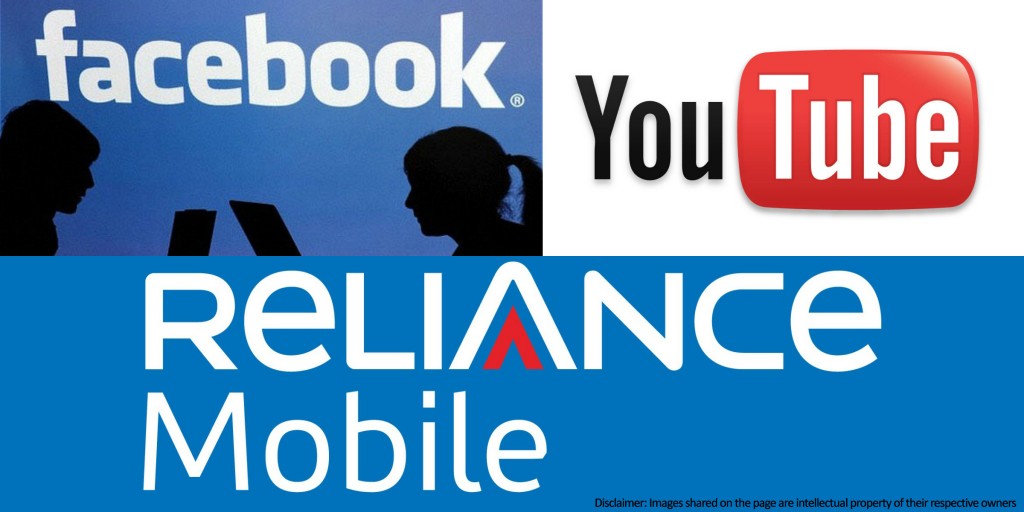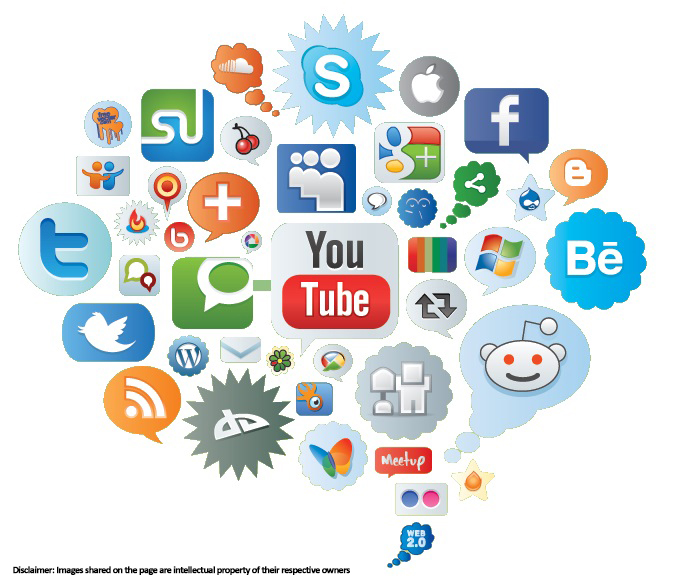From SMEs To MNCs – 5 Family-Businesses That Inspire Every Entrepreneur
Can you imagine starting a business that will be functional even after 100 years from now?
It’s almost unthinkable in this launch-and-sell age, where myriad tech companies are born, built (barely) and sold to larger companies for a quick pay day for entrepreneurs and their antsy investors. But who are those larger companies? Those are the ones who started out small, with the vision mentioned above. You will be surprised to know that many of those Fortune 500 companies were once small, family-owned business.
We have compiled a list of 5 such companies featuring in Fortune Global 500:
1 WAL-MART
Family- Walton
Revenue- $ 476,294 millions
The Waltons are the richest family in America. The descendants of Wal-Mart founder Sam Walton, the family controls more than 50% of the Wal-Mart Corporation. Wal-mart holds the distinction of being not only the largest family business in the world, but also the largest company in the world in terms of revenues.
2 SAMSUNG ELECTRONICS
Family- Lee
Revenue- $ 208,938 millions
The word ‘Samsung’ is inextricably linked with smartphones and electronics. However, before Samsung Electronics, there was merely Samsung Sanghoe: a small trading company founded by Lee Byung-Chull in 1938 that dealt mostly in dried seafood, produce and its own noodles. Today, Samsung has made the work, play and entertainment experiences better for each of its customers and has become one of the giants in the global market.
3 FORD
Family- Ford
Revenue- $ 146,917 millions
Henry Ford founded this auto company more than 110 years ago with a dream of selling cars that the workingman could afford. When a car was considered as a luxury item and not something affordable to buy, Ford introduced large scale manufacturing of cars to the world. The company went public in 1956 and now manufactures more than 5.5 million automobiles in the world and employs more than 1,80,000 employees. Today, fourth- and fifth-generation Fords help run the company, where they still control 40% of the voting power through a special class of stock.
4 RELIANCE INDUSTRIES
Family- Ambani
Revenue- $ 73,332 millions
The richest person in India and MD of Reliance Industries, the largest Indian private sector enterprise, Mukesh Dhirubhai Ambani is a worthy example of business tycoon carrying forward legacy. In 1962, Dhirubhai Ambani, the founder of RIL, started the Reliance Commercial Corporation to import polyester yarn and export spices with a capital of Rs.15,000. With no Oxford or Yale degree and no family capital, he achieved what the Elite “brown sahibs” of the ‘then India’ could not: he built an ultramodern, profitable, global enterprise in India itself. In 2004, Reliance emerged as the first and only private Indian organization to be listed in the Fortune Global 500 list.
5 TATA GROUP
Family- Tata
Revenue- $ 38,502 millions
Tata Group has evolved from being a family-owned business to becoming one of the best-run and professionally-managed groups in the world. Jamsetji Tata laid the foundations of Tata Group when he started a private trading firm in 1868. In 1874, he set up the Central India Spinning Weaving and Manufacturing Company Limited and thus marked the Group’s entry into textiles. Since then, there has been no looking back. Tata family has exemplified the true entrepreneurial spirit with over 100 companies in seven business sectors ranging from communications and information technology, engineering, materials, services, energy, consumer products and chemicals.
If you are going to be a part of your family business in future, we can help you take it to the next level.
Apply to our PGDM-BE programme: http://bit.ly/1zDi5aF | Download brochure: http://bit.ly/1dSP5fT | Visit our website for more info: http://bit.ly/1HJJ43P
.
Open House Events, 2015
Some people are destined to be entrepreneurs. From the time they get through school, or maybe even before that, they’re hungry to start a business and lead it to success and will stop at nothing to make that dream a reality. If this describes you, EDI is the right platform for you to transform your business plan into business success.
Entrepreneurship Development Institute of India
EDI, an autonomous institution set up in 1983 as a pioneering institute for Entrepreneurship Development and Training in India and around the globe. The institute has been acknowledged as a world leader in creating first generation entrepreneurs as also honing skills of existing ones and it shares its expertise with several developing countries.
PGDM-Business Entrepreneurship
The PGDM–BE two-year, full-time, residential programme at the EDI, now in its sixteenth batch of delivering entrepreneurship education, has been designed specifically for entrepreneurs and entrepreneurial mangers to encourage critical and lateral thinking, nurture their ambitions, and enable new ventures through an academically rigorous, directly relevant and highly practical learning experience.
Entrepreneurship Process at EDI
All individuals who enroll themselves into EDI go through the complete process of sharpening their entrepreneurial mind set by boosting their confidence. Through constant mentoring and guidance the students then prepare their business plan and finally they are given the platform to pitch their ideas to banks and investors, so that they can launch their own venture.

Open House events:
The information provided above is just an overview of the course and the skill development process. In order to provide our potential students with an in-depth insight into the course, we have organized a series of Open House events across ten cities in India. These interactive sessions will help you evaluate the course with respect to various aspects so you can have a fair idea whether this course is the best one for you.
Who should attend the Open House events and why:
If you are a graduate or in your final year of graduation and dream of being a businessman, this event is worth your time. Whether it is about your own startup or about making your family business scale the Tata-Birla-like heights, your dreams can get a realistic base and insightful guidelines during the interactive session with our expert faculty at Open House events, along with the detailed information about our PGDM-BE course. Your parents may also join in if interested.
When / Where / Duration:
Schedule:

EDI accepts a maximum of 30 registrations for an Open House. For registering online, go here: http://bit.ly/1IMdpAl
Registrations and Enquiries:
For any further clarification / information please contact us at tushar@ediindia.org
[Top]7 Reasons You Should Never Go For Entrepreneurship (Pun intended)
As entrepreneurship is rapidly gaining popularity across the globe, we wonder why so many people are inclined towards the startup culture? It is sheer stupidity to jump into the world wherein you can find no sure shot formula to success and add to that, a constant risk factor always associated with your life and career. One should simply go for employment as there are so many perks of working as an employee, where the risk factor is limited and the standard of living is high. Here are seven points that prove that employment is a better option than entrepreneurship:
1. Why be an entrepreneur if you can have the satisfaction of saying that you are working as a senior employee in an MNC?
But as an entrepreneur, you can proudly say you OWN a business.
2. Why be an entrepreneur when as an employee, you can enjoy a fixed number of paid leaves for going on holidays?
But if you become an entrepreneur, nobody is going to stop you if you decide to work from a cool place in a holiday destination or from a café while having coffee with your friends.
3. Why be an entrepreneur when as an employee, you have the opportunity to climb the corporate ladder and reach a post just below the topmost post in an MNC?
How about the day when you are at the topmost position of your business from day one? You begin to grow YOUR BUSINESS. And guess what, there’s no growth ceiling.
4. Why be an entrepreneur when as an employee there’s a wide scope for networking with high-profile people working at senior positions in large MNCs?
Who cares? You are more interested in being a member of that special, creative breed with whom you can relate; the one whom the world calls Entrepreneurs.
5. Why be an entrepreneur when as an employee, you love your high paying jobs that change your life and make it more luxurious?
As an entrepreneur, YOU change lives. Period.
6. Why be an entrepreneur and work day in and day out when as an employee, you always reach home on time and that too, after leaving the workload at office?
But entrepreneurship saves you that career hamster wheel at office wherein a monotonous, repetitive, unfulfilling activity eats your head from 9-5.
7. Why be an entrepreneur when as an employee, you can flaunt so many ‘employee of the year’ awards and accolades received from MNCs?
But as an entrepreneur, you have great stories to tell. Stories of your struggle, stories of your success; the story of your dream coming true.
This was our way of letting you weigh the pros and cons of entrepreneurship. At the end of the day, we have made our point clear 🙂
Does that tickle your dream of taking a step towards entrepreneurship now?
EDI is here for you. Apply online for PGDM-BE programme : http://bit.ly/1zDi5aF | Download brochure : http://bit.ly/1dSP5fT | Visit our website for more info : http://bit.ly/1HJJ43P
[Top]Digital Marketing: The New “in” Among Startups
With the advent of the World Wide Web, many magazines and newspapers have folded or attempted to reinvent themselves online. Not only these, major consumer brands have reallocated a significant portion of their advertising budgets to the Web to reach online visitors. Talking about startups, a majority of entrepreneurs find digital marketing much more efficient than traditional marketing. These trends made us wonder what is it about digital media that makes it a favourite among entrepreneurs. We have summed up our findings in the form of 5 major advantages digital marketing has over traditional marketing.
1) Relevant reach at minimum cost
Compared to traditional marketing, digital marketing has the potential to reach exponentially more customers that are relevant to your marketing campaign in a more cost effective manner. While traditional media tends to yield a much higher reach than digital media, it cannot ensure that all people reached are relevant to the marketing campaign. There will always be some portion of the budget generating zero leads simply because the people who saw the ads do not belong to the target audience. On the other hand, when your website content and digital ads appear on search engines to the people looking for the same product category and on targeted posts on social networks like Facebook, Twitter, Pinterest; your message and brand can be seen by many more potential customers, expanding the effectiveness of your total marketing investment.
2) Flexible scheduling
While traditional marketing campaigns require a lot of planning and extensive advance scheduling, marketing campaigns on digital media are flexible in terms of execution. No heavy losses are incurred if the campaigns have to be rescheduled. Add to that the benefit of scheduling posts on social media. Your campaign keeps on running even if you are in a distant country enjoying a holiday.
3) Targeting the audience
With traditional media tools like a mail or television campaign, it’s difficult to target people who are actually interested in your business – meaning your message falls on a lot of deaf ears. On the other hand, digital marketing lets you start up a conversation with the people who actually care about your products/services. For instance, by using the adverts create tool on Facebook, you can reach customers in key locations by country, state/province, city and post code. If you’re an e-commerce business in West India, you can target your adverts at people who live in the West India region. You can also target people based on demographics like age, gender, relationship status, education, workplace and more. For example, an online fashion store would target its adverts at women in the 18-54 age group. Furthermore, Interest targeting lets you define your ideal audience by their interests, hobbies and Pages they like on Facebook. You can also use advanced targeting options, such as targeting women aged between 18 and 34, who live in West India region.
4) Concrete statistics for accurate reports
It’s not easy to know how many people heard your radio spots or read your newspaper ad. But you can find out exactly how many times your digital marketing messages were displayed to customers actively researching a purchase, how many times they were clicked, which web pages they visited after clicking, how long they looked around and more. This online marketing data makes it easy to measure your progress against your business goals and quickly adapt your entire marketing strategy to take advantage of what’s working best. For example, ExactTarget mobile behaviour report helped e-commerce startups revise their marketing plans when it stated that 44% of online shoppers begin by using a search engine. To improve social media performance of brands, it would be of great help to know that if a post is greater than 1,500 words, on average it receives 68.1% more tweets and 22.6% more Facebook likes than a post that is under 1,500 words. Almost 80% companies opted for a mobile optimized site when they came to know that 27% of consumers will leave a site if it is not mobile optimized.
5) A platform for customer engagement and support
Digital marketing sets the stage for customer engagement. Whether it’s lots of phone calls from local customers seeing your online ads, to email opt-ins for a monthly newsletter, comments on a blog, or social media discussions, digital platforms make it easy to communicate with current and prospective customers alike. You can also use social networking websites as a customer support platform. For example, if your customer has a query or a complaint, he might not want to take the time to write to the company using traditional platforms. Instead, he might prefer to switch to another brand. On the other hand, if your startup is active on social networks like Twitter or Facebook, the customer will write to you about the issue in a minute and you can immediately respond to him, thereby maintaining the customer satisfaction as well as the reputation of your startup. You can also use these platforms as a medium for market research. The chances of responses in these media are high compared to the traditional market research techniques like telephonic surveys.
While conducting a research for this blog, we came across a good number of people who believe that traditional media, as we currently know it, will no longer exist in 10 years. While we aren’t at a point where we can really pronounce certain media “dead or alive,” we’re certainly in a state of major fluctuation and we’ll have to continue riding the waves before we see what modern marketing becomes.
[Top]




